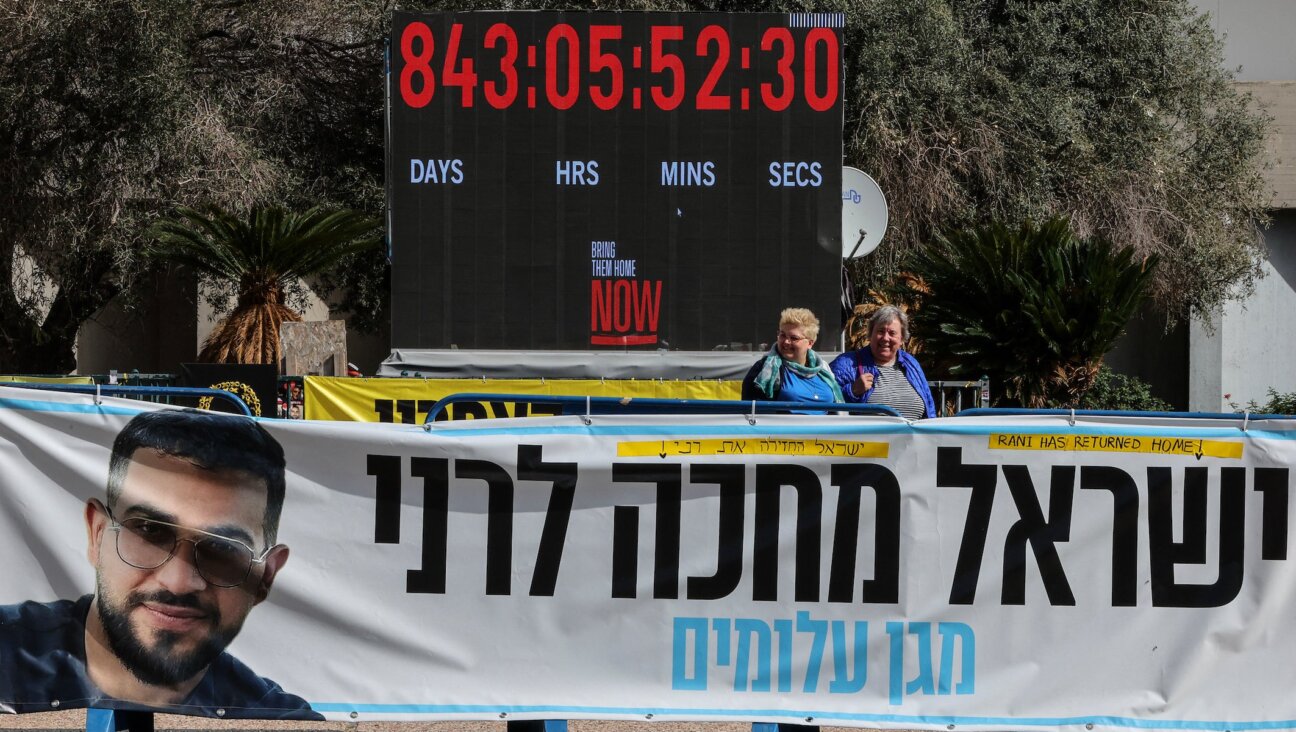Before Talks With U.S., Iran Tests Missiles That Could Reach Israel
Two days before the opening of talks between Iranian and U.S. officials, the Islamic Republic went ahead with a test launch of long-range missiles capable of reaching Israel.
The talks, described by analysts as “a last chance” before the application of harsh sanctions against Iran, will open in Geneva on Thursday. In the discussions, Iranian officials will meet with representatives of the five permanent members of the UN plus Germany.
Iran test-fired its Shahab-3 missile, which puts Israel within reach along with Saudi Arabia and U.S. Army bases in the Gulf. Defense Minister Ehud Barak is scheduled to meet Tuesday with British Prime Minister Gordon Brown to discuss the Iranian nuclear issue.
The two will meet at Brighton, where Britain’s Labor Party is holding a conference. Barak will meet British Foreign Secretary David Miliband Wednesday for a talk on the same subject.
The successful launch of the Shahab-3, which the military said has a range of 2,000 kilometers, came on the second day of war games led by the Revolutionary Guards.
The Foreign Ministry denied any link between the missile tests and the October 1 nuclear talks in Geneva. The war games had been scheduled many months ago, but were seen in the West as an act of defiance, especially in light of the recent exposure by the United States of a facility for the enrichment of uranium which the Iranians are said to have set up in Qom.
Iran has refused UN demands to suspend uranium enrichment, which the United States and some of its allies allege is aimed at developing weapons. The United States, Britain and France said last week Iran secretly built a second plant for enriching uranium in violation of the Nuclear Non-Proliferation Treaty.
Iran’s construction of the underground facility at Qom may prompt additional economic sanctions, including restrictions on banking and oil-and-gas technology, U.S. Defense Secretary Robert Gates told CNN Monday.
The UN’s International Atomic Energy Agency said it was informed by Iran on September 21 that a new pilot fuel-enrichment plant was under construction.
Iran’s test firings during the war games are “deeply destabilizing,” the French Foreign Ministry said in a news conference broadcast online. “We’re calling on Iran to choose the way of cooperation and not that of confrontation,” the ministry said.
The Shahab-1 and Shahab-2 missiles, which can travel 300 to 700 kilometers, were launched late Monday, General Hossein Salami, head of the air force, told Press TV.
The Federation of American Scientists says the Shahab-3 only has a range of 1,290 kilometers, though the Shahab-4 is capable of 2,000 kilometers. In May, Iran launched a Sejil-2 missile, which it said has a range of 2,000 kilometers.
The latest maneuvers are a routine operation to assess the country’s military ability, the government in Tehran said. The exercise, called Prophet IV, is aimed at “practicing management of long-term preventive and defensive operations,” Salami said on the Guards’ Web site.
The maneuvers coincide with the start of Iran’s “Sacred Defense” week, marking the eight-year war with neighboring Iraq that ended in 1988.














